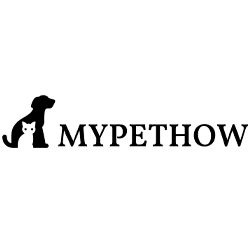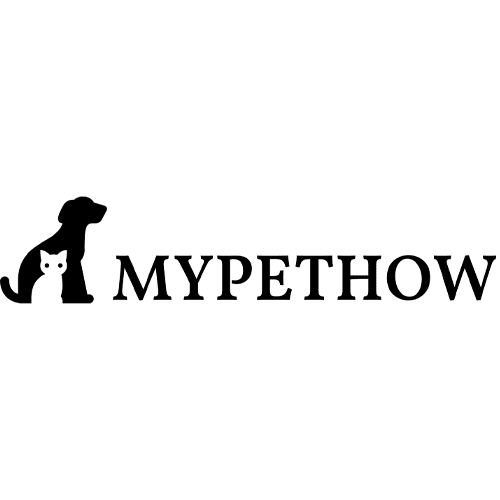Squirrels are known for their love of nuts, but can they eat watermelon too? The answer is yes! Squirrels can eat watermelon, and it can even be a healthy addition to their diet. However, there are some important things to consider before feeding watermelon to squirrels.
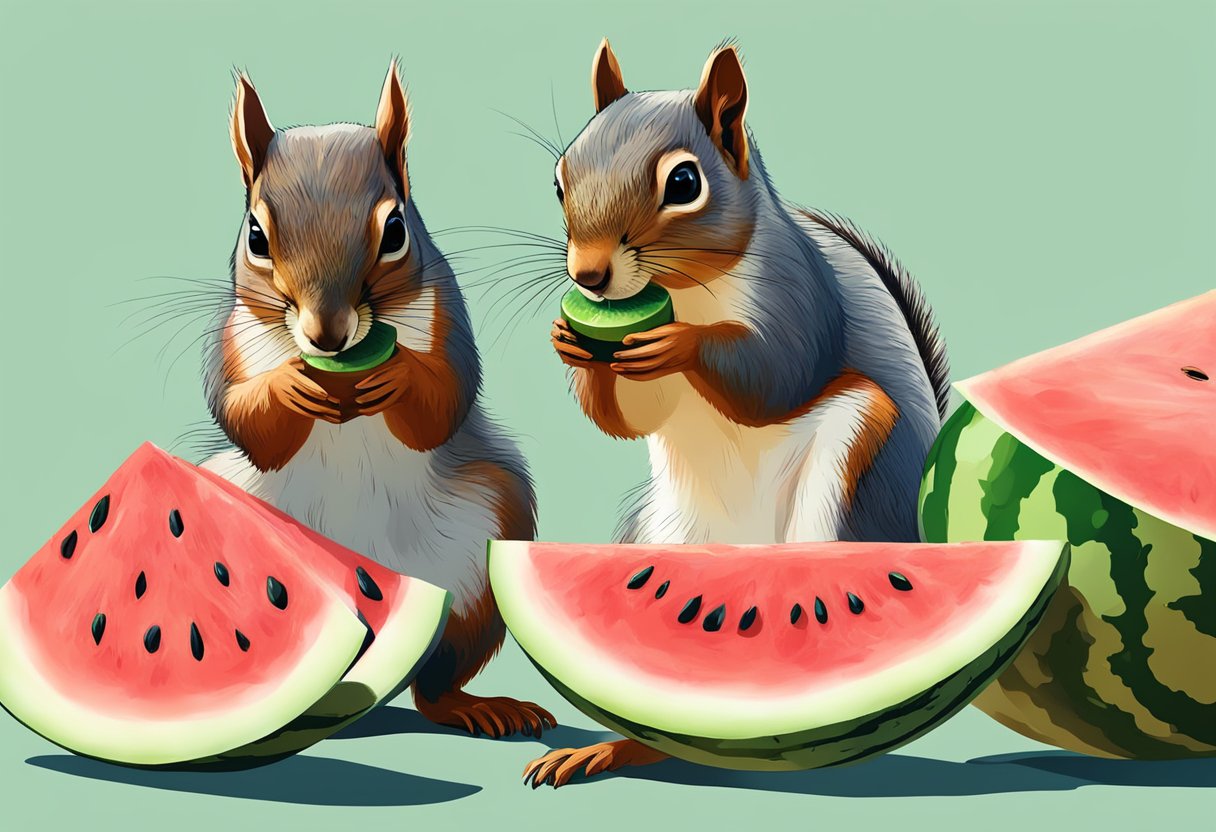
Watermelon is a nutritious fruit that contains vitamins A, B6, and C, as well as potassium and magnesium. Squirrels can safely consume all parts of the watermelon, including the flesh, seeds, rind, leaves, and vines. However, it is important to note that watermelon should only be given to squirrels in moderation as a treat, not as a staple part of their diet.
Key Takeaways
- Squirrels can safely eat watermelon, including the seeds, rind, flesh, leaves, and vines.
- Watermelon is a nutritious fruit that contains vitamins and minerals that can benefit squirrels.
- Watermelon should only be given to squirrels in moderation as a treat, not as a staple part of their diet.
Can Squirrels Eat Watermelon?
Squirrels are known for their love of nuts, but can they eat watermelon? The answer is yes, squirrels can eat watermelon. In fact, all parts of the watermelon are safe for squirrels to eat, including the seeds, rind, flesh, leaves, and vines. However, it is important to note that squirrels should not be fed watermelon regularly as it is not a part of their natural diet.
Watermelon is a healthy fruit for humans as it is loaded with vitamins and other nutrients. Similarly, it can provide some nutritional benefits for squirrels as well. Watermelon is a great source of hydration and provides essential vitamins and minerals such as Vitamin A, B6, C, and Potassium. However, it is important to feed squirrels watermelon in moderation as the high sugar content can be harmful to them if fed daily.
Feeding wild squirrels watermelon is not recommended as they can find all the nutrition they need in their natural diet. Pet squirrels can enjoy watermelon as a treat, but it should not make up the majority of their diet. It is important to note that individual preferences can vary among squirrels, just like any other animals, so not all squirrels may necessarily like watermelon.
In summary, squirrels can eat watermelon, and it can provide some nutritional benefits for them. However, it should be fed in moderation and not make up the majority of their diet. If you want to feed squirrels watermelon, it is recommended to do so as a treat.
Nutritional Value of Watermelon
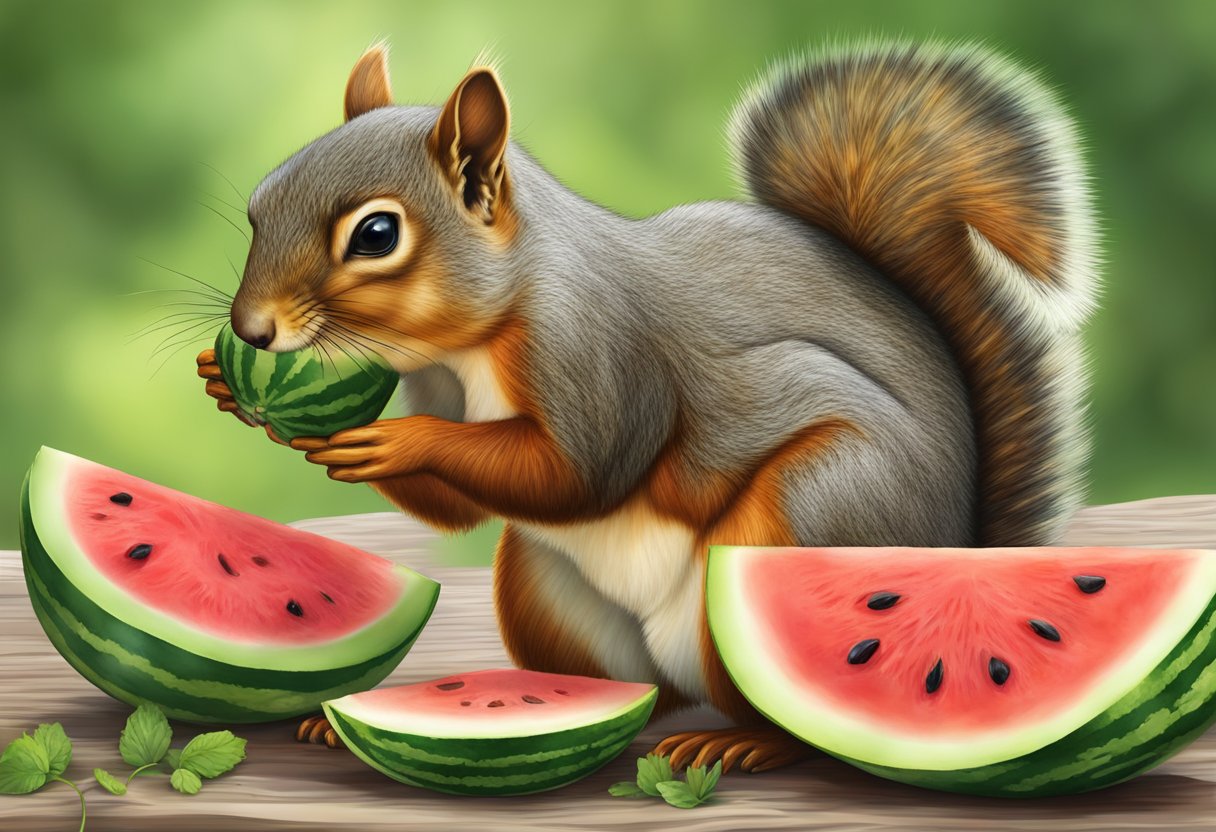
Watermelon is a juicy and refreshing fruit that is enjoyed by many animals, including squirrels. It is a great source of hydration and nutrients for squirrels during hot summer months, when water sources are scarce. Here are some of the nutritional benefits of watermelon for squirrels:
High Water Content
One of the key benefits of watermelon is its high water content, which can help keep squirrels hydrated during hot summer months. In fact, watermelon is made up of about 92% water, making it a great way to quench thirst and prevent dehydration.
Vitamins and Minerals
Watermelon is also a good source of vitamins and minerals that are beneficial for squirrels. It contains vitamins A and C, which are important for maintaining healthy eyesight and immune function. Additionally, it is rich in potassium, which helps regulate blood pressure and supports heart health.
Natural Sugars
Watermelon contains natural sugars, which provide a source of energy for squirrels. This can be especially important for squirrels that are active and need fuel to run, jump, and climb.
Low in Calories
Despite its sweet taste, watermelon is low in calories, making it a healthy snack option for squirrels. One cup of diced watermelon contains only about 46 calories, making it a guilt-free treat for squirrels to enjoy.
Health Benefits for Squirrels
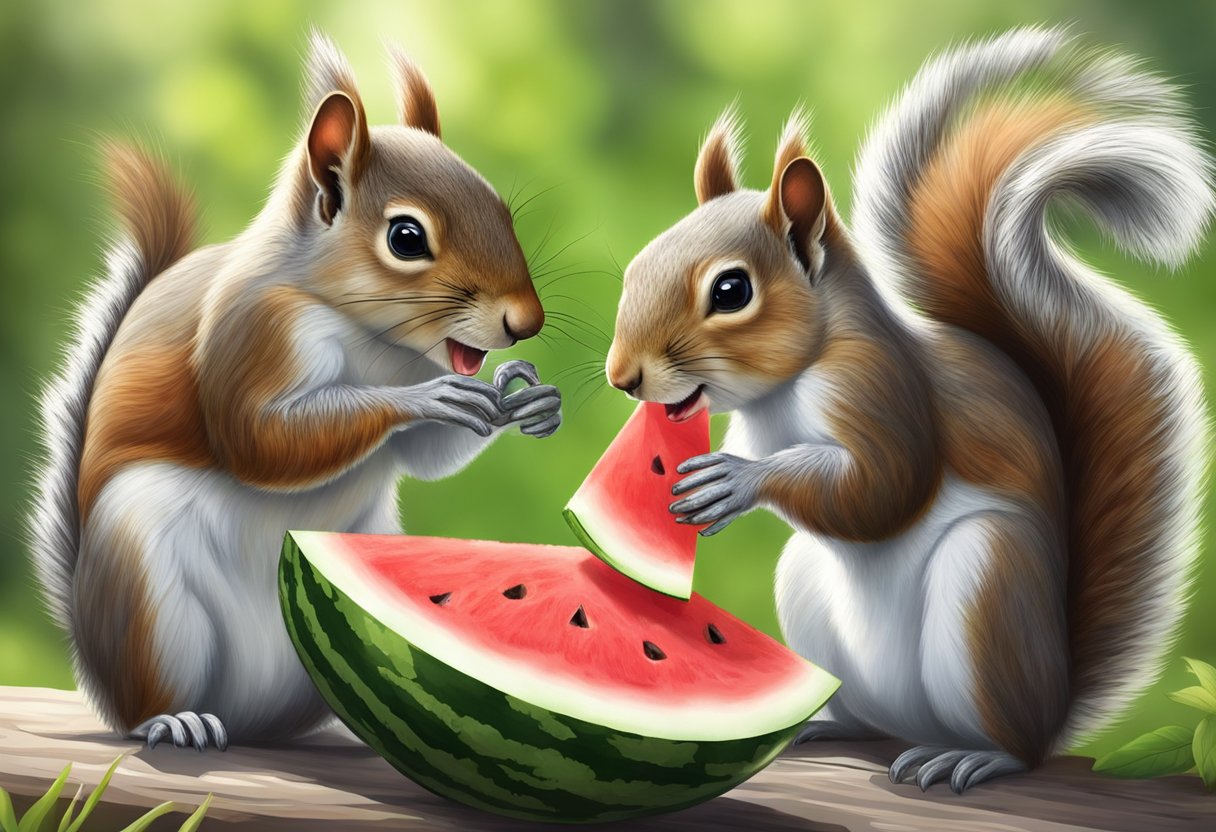
Watermelon is a delicious and nutritious fruit that provides many health benefits to squirrels. Here are some of the health benefits of watermelon for squirrels:
1. Hydration
Watermelon is 92% water, which makes it a great source of hydration for squirrels. Squirrels need to stay hydrated in order to maintain their health, and watermelon can help them do just that.
2. Vitamins and Minerals
Watermelon is rich in vitamins and minerals that are essential for squirrel health. For example, watermelon is a good source of vitamin A, which is important for vision and immune function. It also contains vitamin B6, which helps with brain function and the production of red blood cells. Additionally, watermelon is a good source of vitamin C, which is important for immune function and skin health. Finally, watermelon contains potassium, which is important for heart health and muscle function.
3. Antioxidants
Watermelon contains antioxidants, which are important for protecting squirrel cells from damage caused by free radicals. Free radicals can cause oxidative stress, which can lead to cell damage and disease. Antioxidants help to neutralize free radicals and protect cells from damage.
4. Low in Calories
Watermelon is low in calories, which makes it a great snack for squirrels. Squirrels need to maintain a healthy weight in order to stay active and healthy, and watermelon can help them do just that.
Possible Risks and Precautions
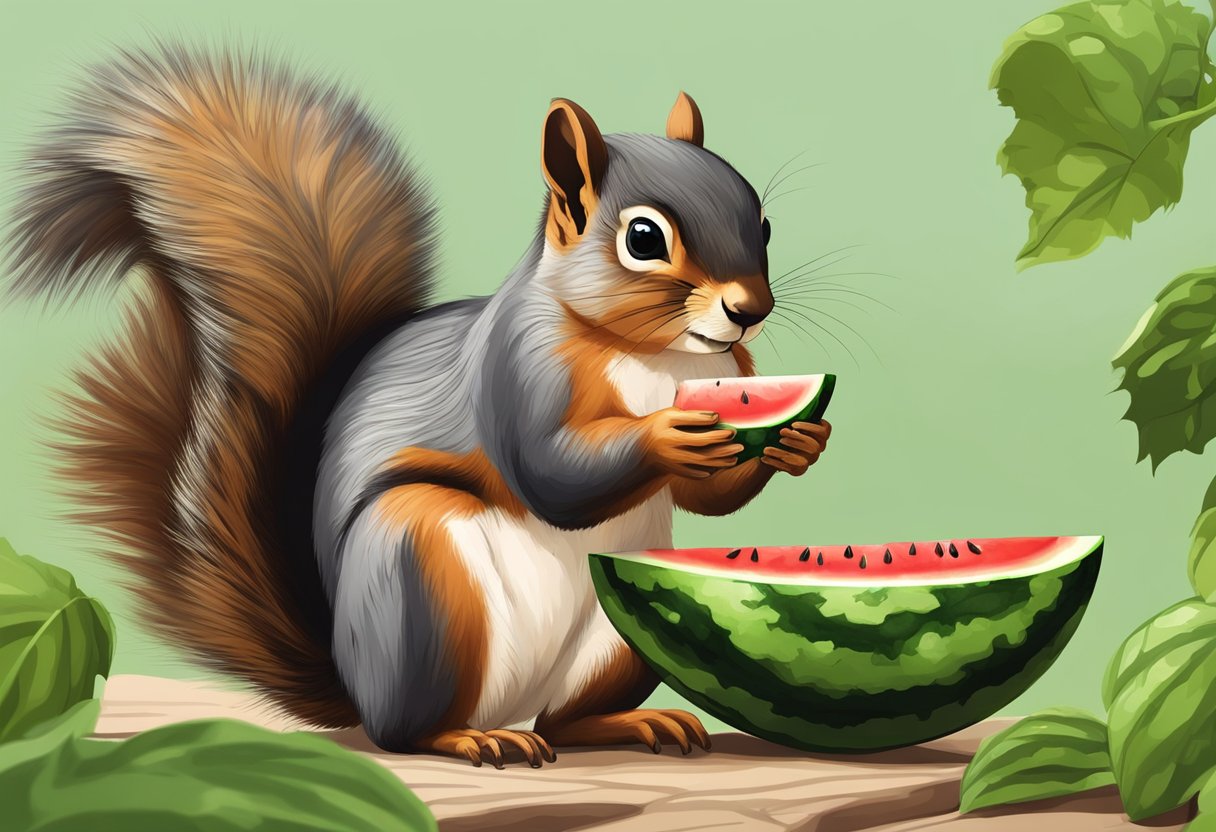
While watermelon is generally safe for squirrels to eat, there are some potential risks and precautions to keep in mind.
Choking Hazard
Squirrels can choke on large pieces of watermelon, so it is important to cut it up into small, bite-sized pieces before feeding it to them. Additionally, it is recommended to remove the seeds and rind, which can also pose a choking hazard.
Digestive Issues
While watermelon is a great source of hydration and nutrients for squirrels, excessive consumption can lead to digestive issues such as diarrhea or upset stomach. It is best to offer watermelon in moderation as part of a balanced diet.
Pesticides
If the watermelon has been treated with pesticides, it is not safe for squirrels to eat. Pesticides can be harmful to squirrels and other wildlife, so it is important to only offer fresh, organic watermelon to them.
Protecting Your Watermelon
If you have a garden and want to protect your watermelon from squirrels, consider using a fence or mesh to keep them out. A fence that is at least 30 inches high and buried 6 inches deep can be effective in keeping squirrels from digging under it. Additionally, using motion-activated sprinklers or other deterrents can help keep squirrels away from your garden.
Safe Feeding Practices
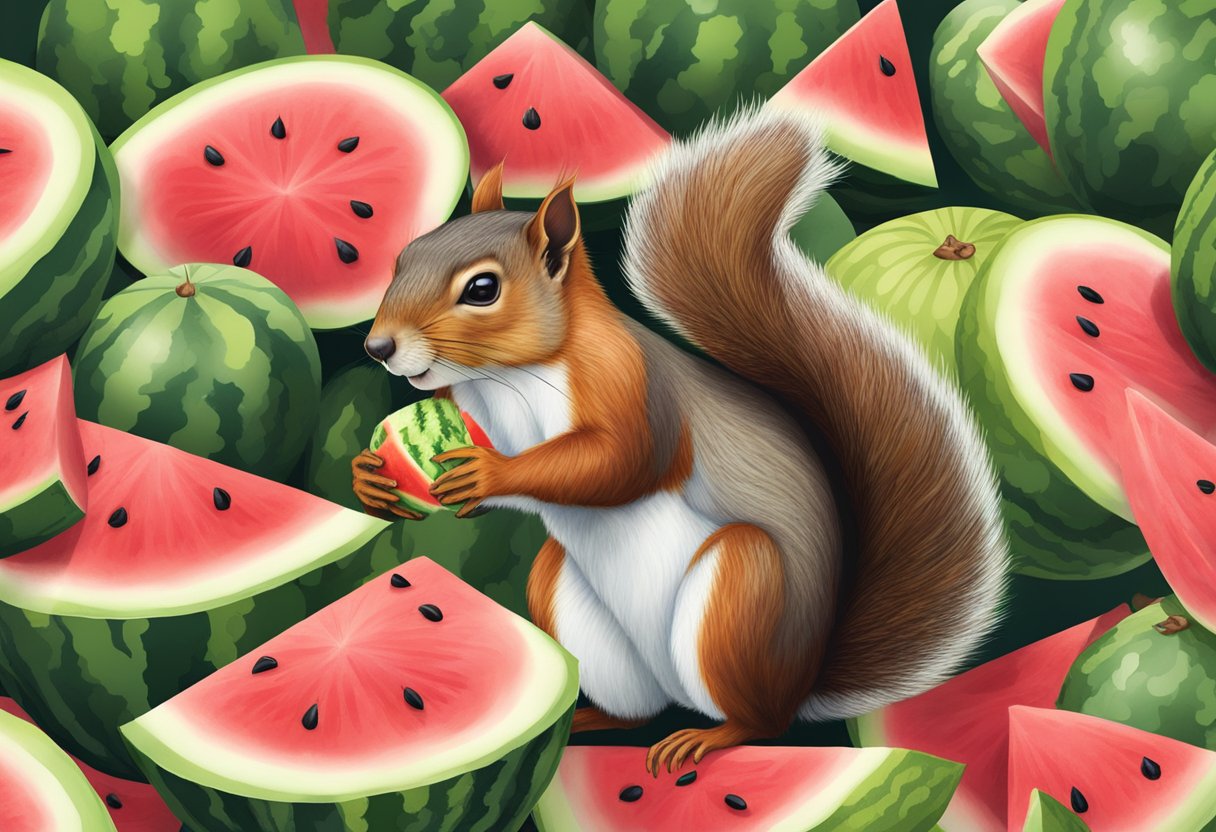
When feeding squirrels watermelon, it is important to follow safe feeding practices to ensure their health and well-being. Here are some tips to keep in mind:
- Moderation is key: While squirrels can eat watermelon, it should not make up the majority of their diet. Feeding them too much watermelon can lead to digestive issues and an upset stomach. It is best to offer watermelon as an occasional treat rather than a regular part of their diet.
- Remove the seeds and rind: Squirrels can eat the flesh of the watermelon, but the seeds and rind should be removed. The seeds can be a choking hazard and the rind can be tough to digest and may cause gastrointestinal issues.
- Avoid pesticides: If feeding squirrels watermelon from your garden, make sure it has not been treated with pesticides. Pesticides can be harmful to squirrels and other wildlife.
- Offer a variety of foods: Squirrels have a varied diet in the wild, so it is important to offer them a variety of foods in captivity. In addition to watermelon, they can eat other fruits, nuts, seeds, and insects.
By following these safe feeding practices, you can ensure that squirrels can enjoy watermelon as a healthy and tasty treat.
Alternative Foods for Squirrels
While watermelon is safe and healthy for squirrels to eat in moderation, it’s important to diversify their diet with other fruits and vegetables. Here are some alternative foods that squirrels can enjoy:
- Apples: Apples are a good source of vitamins and fiber for squirrels. They can be given fresh or dried, but should be cut into small pieces to prevent choking hazards.
- Berries: Berries such as strawberries, raspberries, and blueberries are also a great option for squirrels. They are high in antioxidants and other nutrients that can help keep squirrels healthy.
- Pears: Pears are another fruit that squirrels can enjoy. They are a good source of fiber and vitamin C.
- Nuts: Squirrels are well-known for their love of nuts, and they can be a good source of protein and healthy fats. Some good options include almonds, walnuts, and pecans.
- Vegetables: Squirrels can also eat a variety of vegetables, including leafy greens, carrots, and sweet potatoes. These provide important vitamins and minerals that can help keep squirrels healthy.
It’s important to note that while squirrels can eat a variety of foods, they should always be given in moderation. Overfeeding squirrels can lead to health problems, so it’s important to monitor their diet and adjust accordingly. Additionally, it’s important to avoid feeding squirrels foods that are high in sugar, salt, or fat, as these can be harmful to their health.
Frequently Asked Questions
Is Watermelon Safe for Squirrels to Eat?
Yes, watermelon is safe for squirrels to eat. In fact, all parts of the watermelon, including the seeds, rind, flesh, leaves, and vines are safe for squirrels to consume. However, it is important to ensure that the watermelon does not have any pesticides as they can be harmful to squirrels.
What Are the Benefits of Feeding Squirrels Watermelon?
Watermelon is a great source of hydration for squirrels, especially during hot weather. It is also rich in vitamins and minerals such as Vitamin A, B6, C, and potassium, which are essential for their overall health. Additionally, the sweet taste of watermelon can be a treat for squirrels.
Can Watermelon Be Harmful to Squirrels?
Watermelon is generally safe for squirrels to eat. However, feeding them too much can cause digestive issues such as diarrhea. It is important to only feed squirrels small portions of watermelon as an occasional treat.
What Other Fruits Are Safe for Squirrels to Eat?
Squirrels can also eat other fruits such as apples, bananas, berries, and peaches. However, it is important to remove any seeds or pits as they can be harmful to squirrels. Additionally, it is recommended to only feed squirrels small portions of fruit as an occasional treat.
What Are the Nutritional Needs of Squirrels?
Squirrels require a balanced diet consisting of protein, fats, and carbohydrates. They also need essential vitamins and minerals such as calcium, magnesium, and potassium. In the wild, squirrels typically consume a variety of foods such as nuts, seeds, fruits, and insects to meet their nutritional needs.
How Often Should I Feed Squirrels Watermelon?
Watermelon should only be fed to squirrels as an occasional treat. It is important to only offer them small portions to avoid digestive issues. Additionally, it is recommended to vary their diet and offer them a variety of foods to ensure they are getting all the necessary nutrients.
Conclusion
In conclusion, squirrels can eat watermelon and it is safe for them to consume in moderation. Watermelon is a great source of hydration for squirrels, especially during warm seasons, due to its high water content. It also provides essential vitamins and minerals such as Vitamin A, B6, C, and Potassium.
However, it is important to remove the seeds and rind to prevent choking hazards and to make digestion easier for squirrels. Feeding wild squirrels watermelon is not recommended as they can find all the nutrition they need in their natural diet.
Pet squirrels can enjoy watermelon as a treat, but it should not make up the majority of their diet. It is important to provide a balanced diet that includes a variety of foods to ensure that pet squirrels receive all the necessary nutrients.







































